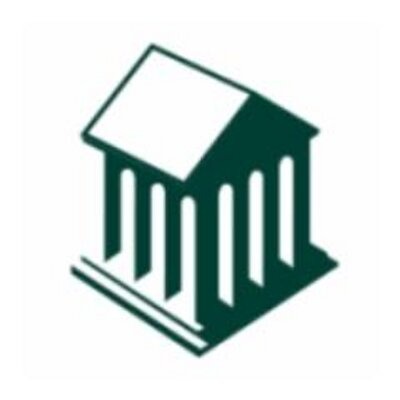search
date/time
 | Lancashire Times A Voice of the Free Press |
4:05 AM 1st May 2021
business
Opinion
Market Analysis: Persimmon, AstraZeneca, GSK, Airbus, Kering And The White Company


"Pent-up demand for housing is also coming through on the back of consumers accumulating lockdown savings and being subject to fewer outgoings."
"The UK's demand-side policies are great for helping individuals, couples, and families get on the housing ladder. However, according to our experts, whilst a chronic undersupply of UK housing persists, demand-side policies mostly serve to drive up prices, benefitting house builders like Persimmon."
Third Bridge Senior Analyst Sebastian Skeet comments on AstraZeneca & GSK
"Against the backdrop of a global pandemic and GSK’s recent lacklustre earnings, AstraZeneca appears to be setting the benchmark for success amongst the world's big pharma' players."

“Whilst some questions remain around the mid-term competitive threats to key Alexion and oncology assets, the proposed acquisition brings in deep scientific expertise and pipeline candidates. Both of which could could be applied to far more prevalent disease and there is a near term opportunity to cross-sell Alexion products into China, a key and rapidly growing market for AstraZeneca”
"The public story for AstraZeneca is less impressive with negative sentiment around its vaccine persisting. Rollout efforts have been impacted by extremely rare blood clotting events, the EU's lawsuit, and questions around the path forward in the U.S."
"There is an urgent demand for vaccines in emerging economies which AstraZeneca’s candidate could cater for, especially given its favourable storage temperature requirements and the fact this remains a safe an effective vaccine option."

"With pandemic-driven stocking in early 2020 serving as a tough year on year comparator, at constant exchange rates and on a pro-forma basis, topline sales for the pharmaceuticals, vaccines and consumer health division dropped by -8%, -30% and -16% respectively. Adjusted EPS is down 33%"
"Not only have existing challenges such as a muted shingrix recovery, late-stage pipeline setbacks, and increased competition around key on-market assets persisted at GSK, but we have seen additional pressures in the form of currency and shareholder activism."
"The outcome of Elliot's multibillion-dollar stake in the company is currently unclear given GSK's planned 2022 consumer health split."
"Whilst GSK will point to positives such as their Benlysta trials and RSV vaccine candidate, our experts are concerned that the healthcare giant's may be unable to plug the gap when key HIV assets go off-patent."
"The market will be watching closely when GSK announces its new Biopharma company strategy and dividend structure in June."

Cash flow improved to 1.2 billion Euros but against a weak benchmark where the company lost over 8 billion Euros in the same period in 2020.
Airbus delivered 125 planes in the first quarter of the year, a slight improvement on Q1 of last year, but fundamental questions persist around when demand will return for the airframer.
Our experts say two conditions are necessary for a strong Airbus recovery. First, we need to see more people taking flights, and then we need to see how airlines will think about replacing old aircraft, many of which haven’t seen many flight hours since March 2020.
Management’s plan to simplify the production set-up for Airbus’ aerostructures look logical. But such a large scale business and production integration will be extremely challenging to realise in the short term.

"These results will allay some concerns regarding the slow down in momentum at Gucci, which underperformed vs peers in 2020 and makes up roughly 60% of Kering's total revenue"
"However, LVMH's leather goods category grew 45% over the same period, which indicates that Kering is still lagging behind its biggest competitor."
"Gucci's collaboration with Balenciaga is a smart way to drive sales growth by combining two iconic brands on one item. This is likely to be particularly successful in China, generating significant brand heat."
"Bottega Veneta continues to be a shining light in the Kering portfolio, solidifying the brand's place as a dominant player in the personal luxury goods market."
"Kering is on the hunt for additional luxury houses to bolster its current portfolio. With Richemont and Prada both out of the picture, rumours are circling around the possibility of a Farfetch takeover."
Third Bridge is a global primary research firm that interviews more than 6,000 internationally recognised industry experts and business leaders a year to compile 360-degree market intelligence for institutional investors. www.thirdbridge.com
The White Company published its result for the 52 weeks up to 1st August 2020.

In a financial year where the final 5 months were dominated by the impact of and response to the Covid-19 pandemic, we are
pleased to report a Group Operating Profit of £14.1m, a 4% increase on the previous year, which was a 70-week period.
Our Group Turnover was £226.3m, up 4% on the previous year on a comparable 52-week basis, although the performance
dynamics were very different in the first 7 months compared with the subsequent 5 months of Covid-19 impact.
Before the pandemic, we experienced similar levels of growth across our Store and Digital channels, but we were then forced to
close our stores in March and unable to reopen them until mid-June. We were able to continue trading online throughout, and
given the strength of consumer demand through our digital channel, we were able to mitigate a large portion of the lost trade
from the stores. This meant that our overall sales in the final 5 months of the financial year saw only a slight decline.
During the year, we opened 2 new stores and 2 new concessions in the UK, bringing the total number of UK stores to 61, including
11 concessions. In addition, we continued to trade 2 stores in Ireland and 1 store in the US, having closed our other US store during
the year. This is all in addition to our UK, US and Euro websites, plus our wholesale arrangement in the US with Nordstrom Inc.
Despite the ongoing impacts of the pandemic and 2 further periods of store closures, trading since August has been positive, supported by a greater consumer appetite for Home and Gifting products. We remain cautiously optimistic for the future, especially
with stores now reopened, but are conscious of the uncertainties within the retail sector as we transition out of lockdown.

Mary Homer
I am extremely proud of the whole team, who have risen to all these challenges, working in an extremely
agile way, and at pace, making very sound business decisions. Most importantly, these decisions have
all been made keeping the customer at the heart of everything we do.
Our strategy to make further strides with our international growth, digital transformation and IT infrastructure remains the same, and this is instrumental in ensuring we achieve future growth.
Overall, as a business, we are in a strong position – trade during this current year has been positive, and we are cautiously optimistic, albeit we know there are many challenges ahead for the economy, and therefore the retail sector.”